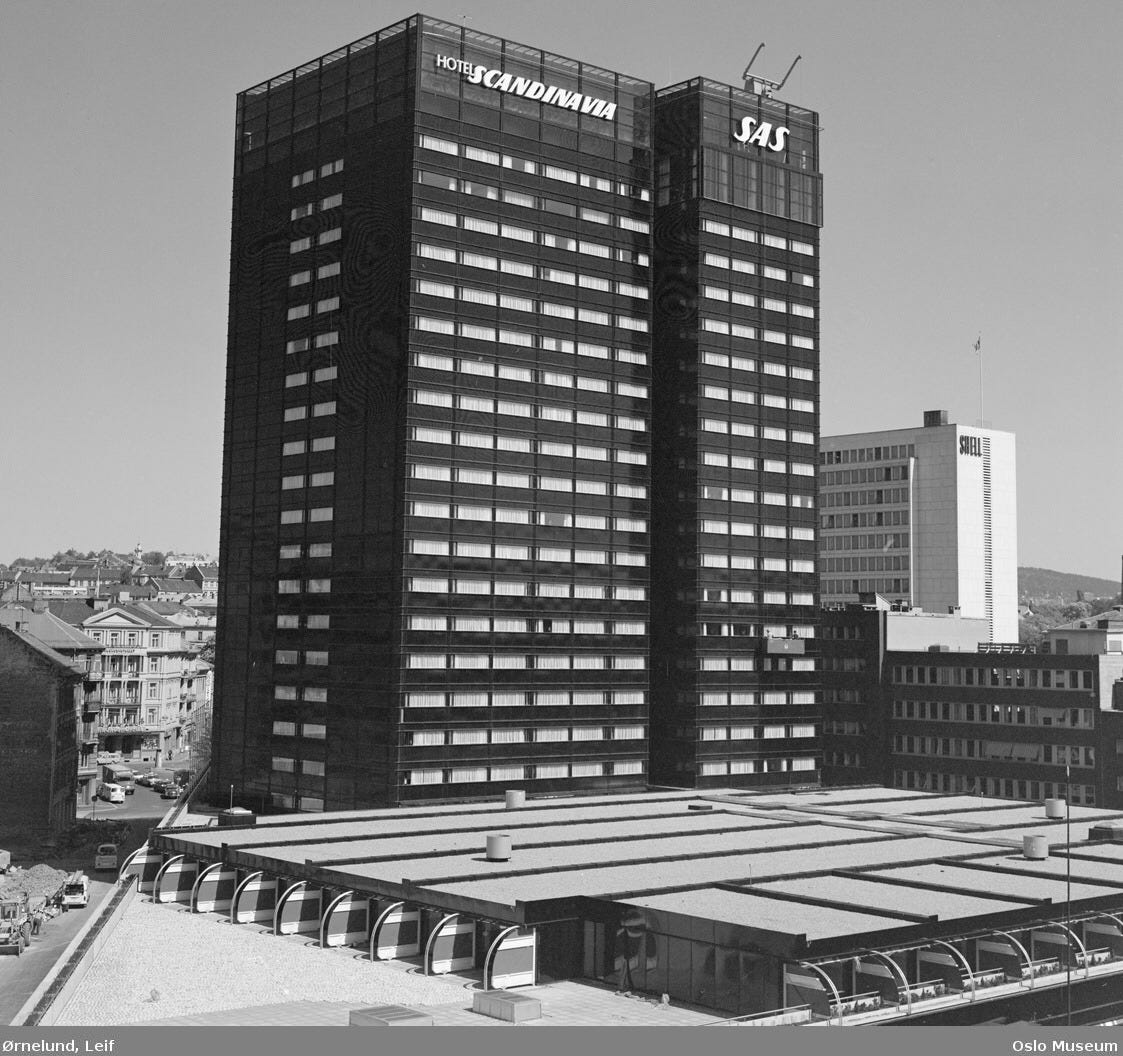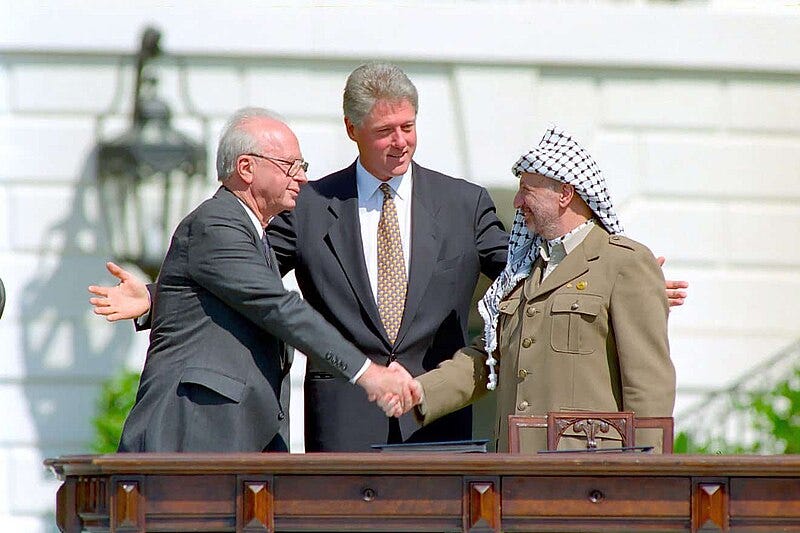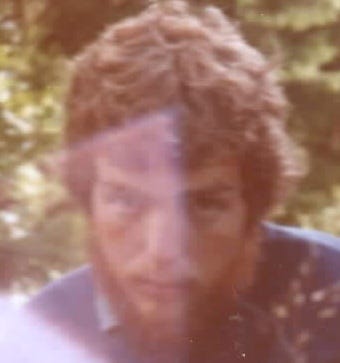“Yes, the CIA has intelligence-gathering agents in Norway. I should know, because I am their senior leader. They report to me.”
Stunned silence followed the US Ambassador’s answer to a question from an American student at the Norwegian University of Science and Technology (NTNU) in Trondheim.
It was the early 1980s. Universities in Europe, including in Trondheim, were full of what Republicans today would call “radical leftists”. Even moderate Democrats would probably call them radical leftists. On one of my first days on campus, I entered a foyer where common interest groups were recruiting members. In addition to the chess club and the debate club, there were groups proclaiming loyalty to Mao, Marxism, and Pol Pot. Some of the banners called for armed revolution in Norway, and others said Anarchy was the only freedom worth fighting for. It was a bit of an eye-opener for a Canadian kid who had grown up in the safety and homogeneity of a small, conservative city.
The US Ambassador came to town a few years after I started university. A meet and greet at a fancy hotel was organized for the city’s US students and faculty. The foreign student population was small. Nobody was talking about Canada becoming the 51st state, but the handful of Canadian students in Trondheim were invited, probably to ensure attendance reached double digits. On the way to the event, a US student and I were joking that the ambassador would be shocked to see all the communists in the crowd.
I fit right in with the radicals, not politically, but because I couldn’t afford to shave or buy new clothes, I looked the part with my long hair, beard and tattered jeans.
After a perfectly diplomatic speech that no one would remember, the Ambassador’s Q&A began. The first question, or at least the only question I remember was,
“Is there truth to the rumour that the CIA is active in Norway?”.
It was followed by a few nervous snickers from early 20-somethings admiring their brave classmate. When the ambassador answered, the snickering stopped and nobody had a smart Alec follow-up.
That was my first up-close experience with a professional diplomat. My life abroad and my career in hotels gifted me many more.
When King Olav V of Norway died the evening Gulf War I began, 126 countries prepared to send heads of state or high-level delegations to the funeral. Having been part of a small covert team planning the accommodation and transport logistics for state funerals, I spent the next ten nights in the hotel conference area. During the planning process, we used fire safety as an excuse to upgrade the area. The upgrades allowed us to physically seal the area off with large steel doors. Cabling from the airline ticket office in the lobby had been run in a ceiling void so it could be dropped into a meeting room where, in pre-internet times, we could monitor flight bookings and passenger lists. By day, the conference area was manned with police, military, and foreign ministry officials. By night, I was the lone person there, monitoring the fax machine for bookings. I marveled at how the diplomats in the protocol department pieced together the puzzle of delegations needing accommodation.

The ability to seal off the hotel conference area to use it as a centre of operations for special security events, while the regular police and emergency services operations centres continued their regular duties, served the country well again in the following years when Norway played a pivotal role in the Oslo Accords peace process. I remember sitting in the room with police, military, foreign ministry, and a select group of embassy officials when NATO fighters were sent up from Brindisi air base to identify an aircraft that had left Libyan air space and was heading North.
A couple of hours later, I was escorting Yasser Arafat and his entourage through the lobby on his first official (i.e. publicly known) visit to Norway.
Two things were becoming clear to me.
Our world, and countries’ national security, benefits greatly from public-private partnerships and great diplomats.
During one of the first annual briefings I attended at the US State Department Overseas Security Advisory Council, a US Ambassador posted in a country with an extremely high threat of terrorism lamented that embassies were becoming fortresses.
“We mustn’t forget that we’re diplomats. We need to be able to engage with people. Not just with the leaders of the countries we’re in, but with the people, because it’s them who are potential drivers of change in a country.”
Every country has to protect itself, its people, and its interests. They must also respect the rights of the people who live in other countries.

Great leaders understand that diplomacy is vital. The Oslo Accord peace process wouldn’t have happened if Yitzak Rabin and Yasser Arafat hadn’t found a way to personally recognize each other and the right to exist for the people each of them represented.
There are people of all political persuasions everywhere. Many want change from the situation their country currently is in. But they want their own change; they don’t want to be invaded, annexed, or forced to give up their sovereignty.
Even in countries with political systems and beliefs completely opposite to my own, I’ve never met anyone who said, “Please invade us and make us more like you.”
We live in uncertain times. Legendary BBC World Affairs Editor John Simpson believes 2025 could be a year when “the basic assumptions of the way our world works are fed to the shredder.”
Sometimes, it’s like we’re living in a giant sandbox where some leaders have shunned diplomacy and communicate via capital-lettered tweets, silly slogans, and name-calling.
The worst thing we can do is follow that lead and turn our backs on good people stuck in countries with bad leaders.
I’m confident that many great diplomats I met over the years are still there. Many more, unknown to me, are out there, too.
They haven’t suddenly turned into evil, Edward Hyde-like versions of themselves. The good ones among them are no doubt busy in the back channels, finding ways to restore some certainty and hope for the peaceful future of everyone on our planet.
They deserve our support, even as they operate in the shadows or the corners of an off-the-books hotel room an understanding private-sector contact has arranged for them.
Stay safe, Always Care
Remember: This is “social media” - please be sociable and
Comment (I’m really interested to hear your thoughts)
”Restack” (to share with others on Substack)
“Like” (that would make my day)
Share with others in your network! (because the world is bigger than Substack)

Hi! I’m Paul. I was born, raised, and currently live in Canada. After high school, I embarked on a gap year in Europe. It lasted four decades. I went to university in Norway and started my hotel career in the basement of a five-star hotel in Oslo. The manager who hired me told me I was too old, too educated, and had too many opinions to be a security guard. He also told me that the only other person who applied for the job didn’t want it.
Thirty years later, I left that same company. It had grown from a small regional hotel chain in Scandinavia to become a large, global, multi-brand company. I moved from Norway to Denmark to Belgium. The company awarded me their highest individual honour for leadership, and security professional peers selected me as the world’s most influential corporate security executive.
I’m a hospitality professional. I’m a security professional. If you ask, I will tell you that security was my job, and hospitality was my business.
Today, I’m an educator and a consultant passionate about hotels, hospitality, and keeping people safe during their travels.
In addition to the Always Care Community, I also write for Risk Resiliency’s Keep Travel Safe. If safe, secure hospitality, hotels, and travel are important to you, please follow us there!
Written with the clarity of hindsight, the accuracy of a faded memory, and countless creative liberties, this is a newsletter of how life has made me an emigrant, an immigrant, and gifted me experiences I never dreamed possible.
Thanks for reading. Your support is my motivation and I’m genuinely grateful that you’re here. Please share, subscribe, and connect with me.





I had a similar experience as a student on an American mini-campus in Tours in 1980. A friend and I somehow ran into a French university student, started chatting, and she suggested we go out to eat together. Before we knew it, we were being plied with Communist rhetoric and flyers about various meetings going on in town. It was an eye-opener. That said, she was very nice.
Hi Paul, great article and as usual to the point about the current situation.